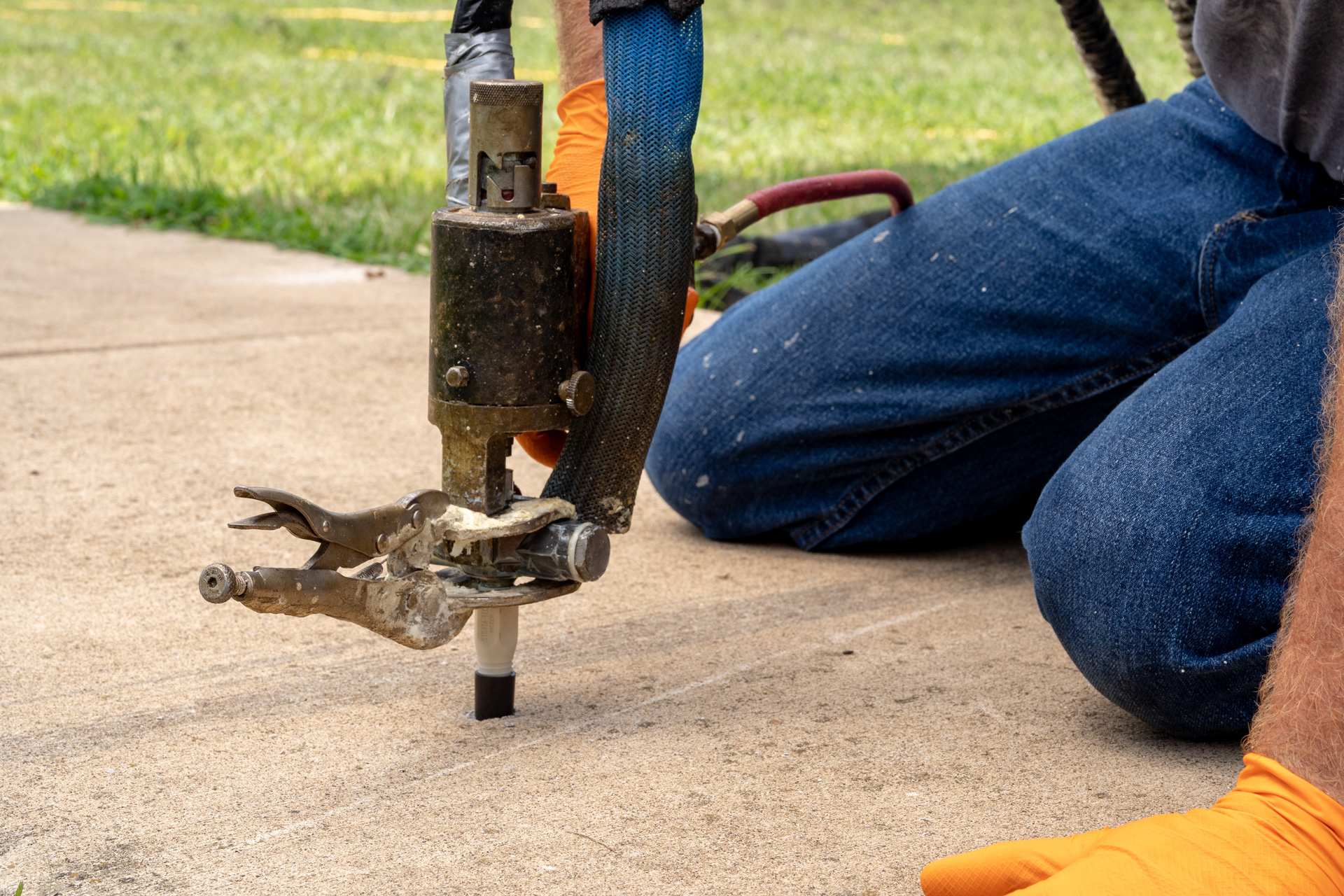Concrete Leveling Services for Concrete Repair by United Dynamics, Inc.
Considering concrete repair and are located in Louisville? Concrete leveling is a quick, easy, and cost-effective concrete repair alternative. Modern construction relies on a strong concrete foundation, and for good reason. In its solid form, concrete can last a very long time and provide years of support and protection. However, shifting soil can weaken the concrete structure. When soil shifts, it can create void spaces that cause an uneven distribution of weight across the concrete slab. When this happens, the concrete can begin to crack and collapse into the soil.

Our Concrete Leveling Options
Depending on the cause of your damaged concrete, there are several services that United Dynamics can offer that will restore your home’s integrity. Not sure which concrete leveling technique will best suit your property and budget? Or perhaps you’re unsure if helical piers will provide the additional support you’re looking for? Our concrete repair specialists can help guide you towards the best solution for your Louisville, Indianapolis, Evansville, or New Albany home.
Helical Piers
Helical piers look a lot like giant screws and are used to drive through weakened soil until a load-bearing depth and stability is achieved. Our team can install helical piers and then adjust a bolt to lift the concrete back into position.
Pressure Foaming
Pressure Foaming is a common and reliable method for fixing issues with your concrete. Holes are drilled strategically into certain areas of the concrete and filled with a polyfoam material. This material fills the open spaces that have formed underneath your concrete which then lifts the concrete back into place and provides support for your home in Louisville. Pressure foaming is often referred to as mudjacking or poly-leveling.
What is Self-Leveling Concrete?
Despite what the name might suggest, self-leveling concrete does not actually have anything to do with your typical concrete repair applications. Self-leveling concrete is simply a different formula of concrete that includes polymer modifications allowing the concrete to have high flow characteristics and to not require the addition of excessive amounts of water for placement. This type of concrete is most often used to create a smooth, flat surface with high compressive strength for the installation of interior floor coverings. Therefore you would not, for example, use self-leveling concrete for a sidewalk and expect to be able to avoid having to level it in the future.
How Soil Affects Concrete
Water erosion or unsupportive soil underneath the concrete slab are the main causes of concrete issues. Heavy rainfall or plumbing leaks can cause water formation underneath your concrete slab, which disrupts the strength of the soil and can weaken it over time. Weakened soil causes uneven support distribution for the slab, causing the concrete to sink or crack.
If shifting soil doesn’t appear to be the cause of your cracked concrete, another possible culprit is overgrown tree roots. When tree roots force their way beneath concrete slabs, they can cause the concrete to become uneven or crack due to the additional pressure.
Symptoms of concrete issues are generally easy to spot. Typical signs include sloping concrete slabs or patios, uneven sidewalks, or cracked concrete slabs. If you notice any of these symptoms at your house in Louisville, concrete repair may be necessary.
